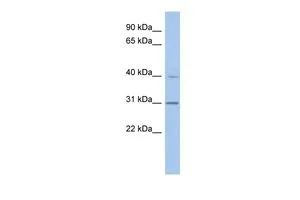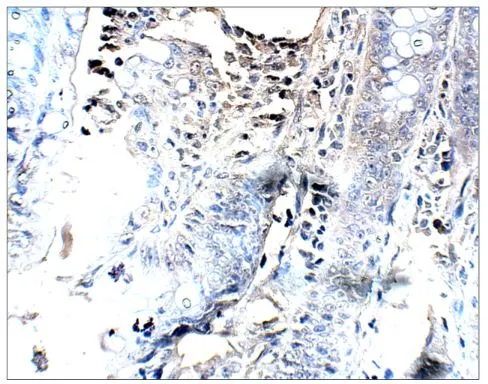
WB analysis of THP-1 cells using GTX45905 PERLD1 antibody at 0.2-1μg/ml.
PGAP3 antibody, N-term
GTX45905
ApplicationsWestern Blot
Product group Antibodies
ReactivityHuman
TargetPGAP3
Overview
- SupplierGeneTex
- Product NamePGAP3 antibody, N-term
- Delivery Days Customer9
- Application Supplier NoteWB: 0.2-2.5 ug/ml. *Optimal dilutions/concentrations should be determined by the researcher.Not tested in other applications.
- ApplicationsWestern Blot
- CertificationResearch Use Only
- ClonalityPolyclonal
- Concentration0.5-1 mg/ml
- ConjugateUnconjugated
- Gene ID93210
- Target namePGAP3
- Target descriptionpost-GPI attachment to proteins phospholipase 3
- Target synonymsAGLA546, CAB2, PERLD1, PP1498, hCOS16, GPI-specific phospholipase A2-like PGAP3, COS16 homolog, gene coamplified with ERBB2 protein, per1-like domain containing 1, post-GPI attachment to proteins 3, post-GPI attachment to proteins factor 3
- HostRabbit
- IsotypeIgG
- Protein IDQ96FM1
- Protein NameGPI-specific phospholipase A2-like PGAP3
- Scientific DescriptionThis gene encodes a glycosylphosphatidylinositol (GPI)-specific phospholipase that primarily localizes to the Golgi apparatus. This ubiquitously expressed gene is predicted to encode a seven-transmembrane protein that removes unsaturated fatty acids from the sn-2 position of GPI. The remodeling of the constituent fatty acids on GPI is thought to be important for the proper association between GPI-anchored proteins and lipid rafts. The tethering of proteins to plasma membranes via posttranslational GPI-anchoring is thought to play a role in protein sorting and trafficking. Mutations in this gene cause an autosomal recessive form of neurologic hyperphosphatasia with cognitive disability (HPMRS4). Alternative splicing results in multiple transcript variants encoding distinct isoforms. [provided by RefSeq, Jul 2017]
- ReactivityHuman
- Storage Instruction-20°C or -80°C,2°C to 8°C
- UNSPSC41116161



